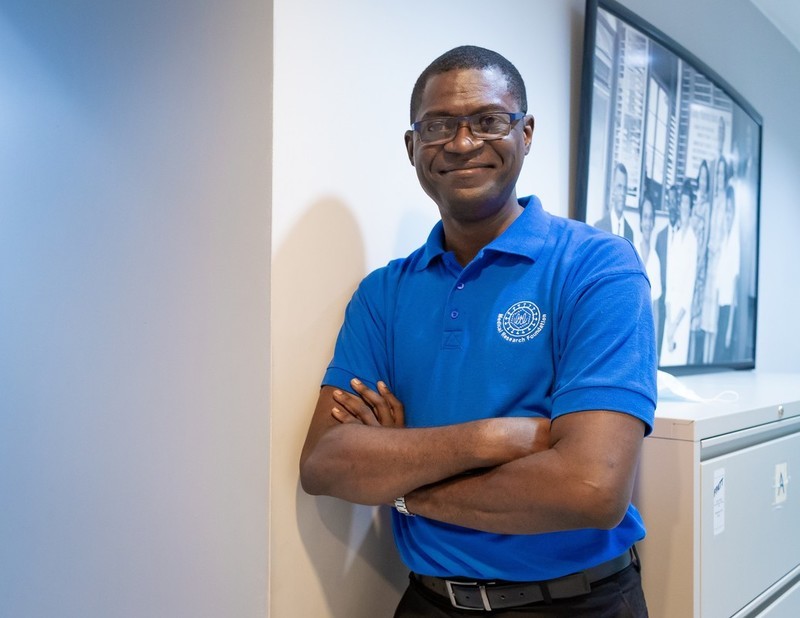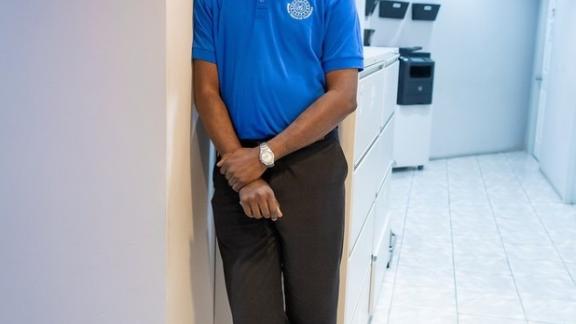“You work with people who have HIV? Why?” That was the question Dr. Gregory Boyce was asked by the young intern that stood before him. He had come to the hospital ward to visit a client who was known to be living with HIV. He approached the intern at the desk and gave his name and designation. The intern looked at him, confused and somewhat amused and asked the question that he has neither forgotten, nor understood to this day.
However, this young intern’s question comes from a mindset that Dr. Boyce is working fervently to change. As Deputy Director of the Medical Research Foundation of Trinidad and Tobago (MRF), Dr. Boyce provides clinical and administrative support to a team of doctors and nurses providing care to their clients who are living with HIV. Due to MRF’s long-standing work in HIV research and healthcare, the Family Planning Association of Trinidad and Tobago (FPATT), has referred many clients to Dr. Boyce and his team, and especially clients from the LGBTI+ community.
Providing specialist care and support
“Persons coming to us from key populations, have very layered needs. They are facing unique challenges in addition to living with the virus. There is still that myth that being HIV positive means that you will positively die. Added to that, there’s the discrimination that the community faces in every aspect of their lives on a daily basis. As a staff, we’ve had to seek special training to guide the way we interact with these clients so that we can meet all their needs appropriately and sensitively,” explains Dr. Boyce.
“Apart from medical interventions which are needed to ensure that our clients continue to live healthy lives, we focus heavily on their psychosocial needs. It’s easy to think that because a client is physically healthy that they are also emotionally healthy. We have clients that won’t leave abusive relationships because they think no one else would accept them. We have other clients that are dealing with long-term medication fatigue because they have been taking pills for over 10 years. With that sometimes comes depression and other drug addictions, which is why it’s necessary for us to maintain open and honest relationships to address those accompanying issues.”

Making HIV a non-issue
Dr Boyce has been committed to providing treatment and care to clients living with HIV for over 20 years. He had worked at the Port of Spain General Hospital after graduating, during which time, medicine for persons living with HIV was expensive and out of reach for many. A few years later, through government programmes, medicine became more affordable, and treatment centres were opening up across the island. However, Dr. Boyce realized that the mortality rate had not changed by much. He wondered why people were still dying from a virus when medicine was easily accessible.
“That first conversation – giving a client the news that they’ve tested positive – is very important. We get to show them that HIV is not an impediment. Most times, with the wrong information, they start to draw up a list of things that they can no longer do, like go after a promotion or start a family. Then they go through life shrunken and unrecognizable, not the person they once were. So to answer that intern’s question about why I work with persons living with HIV: I want to make HIV a non-issue,” he states.
Dr. Boyce hopes to see HIV disclosure become as acceptable as other chronic illnesses such as cancer or diabetes, where an entire family would work towards caring for the affected person, instead of alienating them. He also hopes to see more inclusion and tolerance towards persons living with HIV, especially those within the LGBTI+ community.
“Until a gay or transgender person can walk the streets freely and not be jeered at by passers-by, we still have a long way to go. Until they can access treatment at any public facility without fear or judgment, we have a lot of work to do. It would take a lot of education to change the stigma and discrimination but there is absolutely no reason why another person’s life should be miserable because their expression is different to ours.”
He commends the work of FPATT in upholding the sexual and reproductive health and rights of the LGBTI+ community, through ensuring that they have a safe and non-judgmental environment for treatment and care. He says that the Medical Research Foundation values the great relationship that the two organizations have had for years, even as FPATT works towards becoming its own full-service antiretroviral treatment site for persons living with HIV.
when
country
Trinidad and Tobago
Subject
HIV and STIs
Related Member Association
Family Planning Association of Trinidad and Tobago








